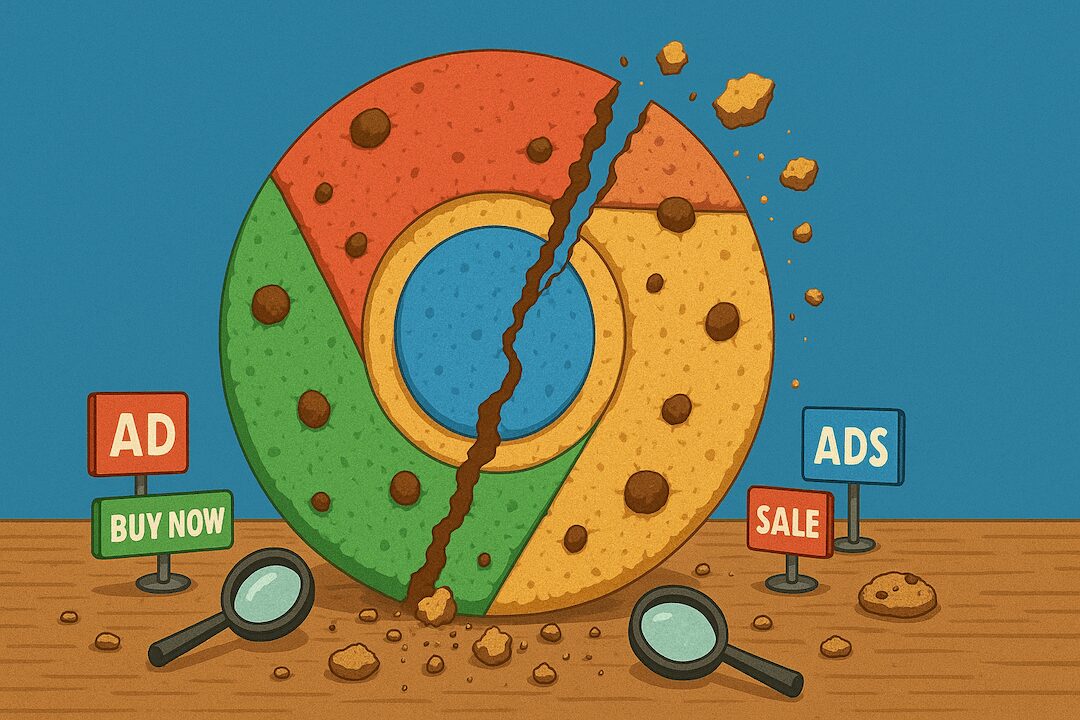Since 2019, Google has been trying to eliminate 3rd-party cookies – small text files that allow websites to follow a specific user across the web to serve them targeted ads.
However, they have officially announced that they will no longer prompt users to turn off 3rd-party cookies in an upcoming version of Chrome.
Google’s Cookie Conundrum
They started with the awkwardly-named Federated Learning of Cohorts (or FLoC for short). I wrote a blog post about FLoC in early 2021, explaining (in broad strokes) how it worked. While it did improve privacy for user’s in certain situations, it didn’t fully prevent web sites or ad networks (like Meta and Google) from tracking users across the web.
Later, Google scrapped FLoC for the better-named (but still awkward) Topics API, which did a better job at keeping user data private, but had two big issues to contend with. The first is that ad platforms like being able to track users across the internet. Being able to micro-target users of a specific gender and age range, in a small geographic area, and who have already expressed an interest in a certain topic is incredibly valuable to companies, and they put a lot of pressure on Google to keep 3rd-party cookies around.
Google’s Current Cookie Plans
Additionally, Google is fighting numerous lawsuits. In August of 2024, Google was officially declared a monopoly in the “online advertising space”. And more recently Google Search was ruled a monopoly for locking out other search engine competitors with multi-billion dollar exclusive deals with companies like Apple. While there are many possible remedies to Google’s monopolies, many of them revolve around forcing Google to sell certain products or services (like Chrome).
In this current environment, any changes to Chrome that appear to benefit Google’s own ad technology and business – while causing disruption to competing ad providers – could be seen as another example of Google’s anti-competitive behavior. This would be a risky move when Google is already under the DoJ’s microscope.
Google also says that since current advertisers are taking privacy more seriously (though that’s a low bar considering their history), and Chrome’s Incognito mode now blocks 3rd-party tracking cookies and will soon hide a user’s IP address (making it even more challenging to track users), there is less of a need to have 3rd-party tracking cookies disabled for the browser as a whole.


Leave a Reply
You must be logged in to post a comment.